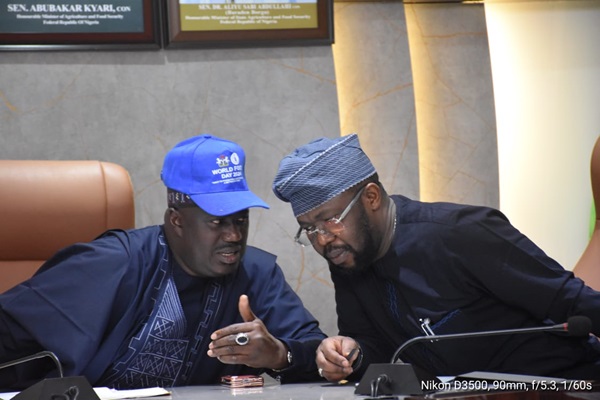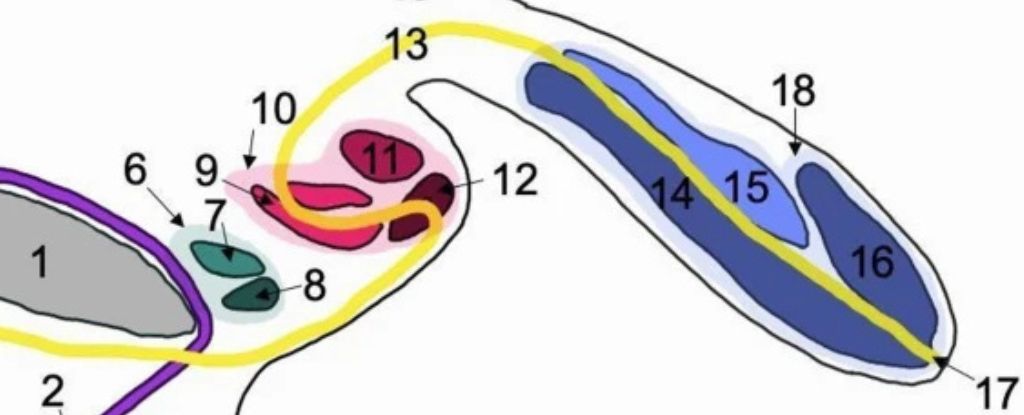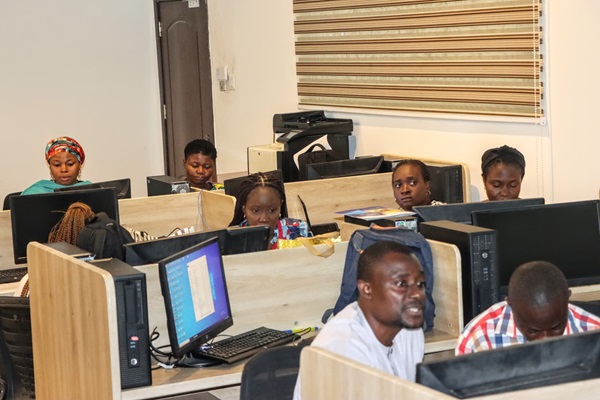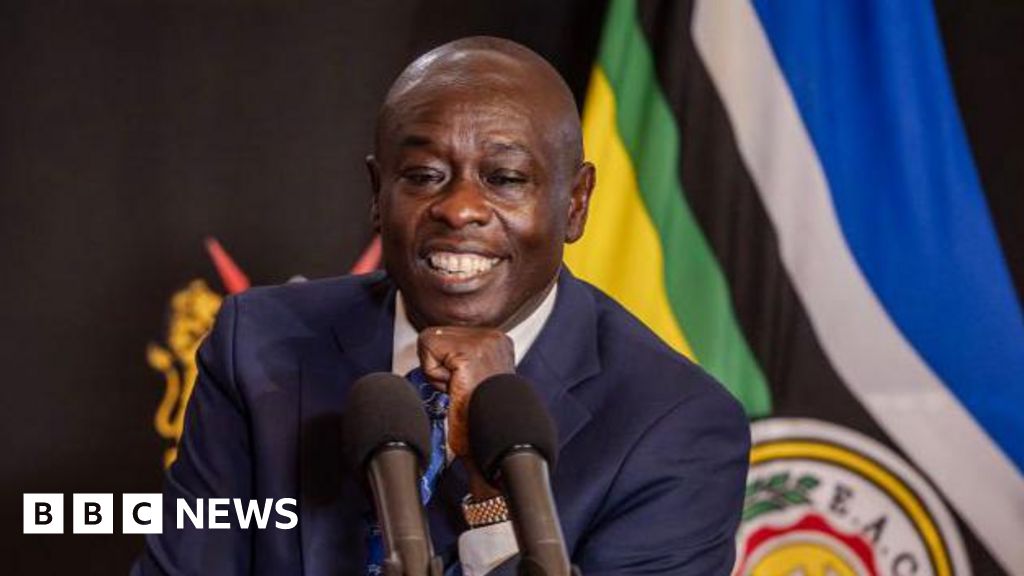Place your adverts here on InfoDig @ low rates; banner ads, sponsored links and guest articles etc. Contact us
 L-R: The Minister of State for Agriculture and Food Security, Sen. Aliyu Abdullahi and the assistant Food and Agriculture Organization representative, Prof. Salisu Mohammed during the ministerial press conference in Abuja.
L-R: The Minister of State for Agriculture and Food Security, Sen. Aliyu Abdullahi and the assistant Food and Agriculture Organization representative, Prof. Salisu Mohammed during the ministerial press conference in Abuja.As Nigeria joins the rest of the world in marking the 2024 World Food Day, the Federal Government has announced that emergency responses and targeted humanitarian actions have been initiated to address the food crisis currently plaguing the nation.
The Minister of State for Agriculture and Food Security, Sen. Aliyu Abdullahi made this announcement during a ministerial press briefing to commemorate the World Food Day 2024, themed “The Right to Food for a Better Life and a Better Future,” at the ministry’s headquarters in Abuja.
World Food Day, celebrated on October 16 each year in over 150 member countries of the Food and Agriculture Organisation (FAO), marks the anniversary of the founding of FAO in 1945. This global event brings together governments, the private sector, civil society organisations, the media, and the public to raise awareness about global food challenges and the need for collective action to ensure food security for all.
“Nigeria’s food security is under threat due to the continuous intensification of insecurity, economic shocks, floods and the removal of subsidies,” the minister noted. “To address the underlying challenges affecting our national food security, the Federal Government is implementing several economic reforms to stimulate productive capacity, create jobs and reduce the cost of living.”
Abdullahi disclosed that the government has ordered the immediate release of over 102,000 metric tons of maize, millet, and garri, among other food commodities, from the National Food Reserve to alleviate the rising cost of food. Additionally, the administration has resorted to importing certain food commodities as an interim measure to address shortages.
He further outlined plans to cultivate 500,000 hectares of farmland nationwide to grow maize, rice, wheat, millet and other staple crops to boost food supply and affordability. This strategy involves collaboration with state governments to curb inflation and enhance food security.
“Nigeria contributes significantly to the food supply in West Africa, and with the largest agricultural potential in the region, we have the opportunity to radically transform our food production systems and contribute more to regional food security,” the minister said.
 A cross section of stakeholders during the press conference in Abuja.
A cross section of stakeholders during the press conference in Abuja.He also emphasised the Federal Government’s commitment to building productive and sustainable partnerships with international development partners to scale up interventions in various agricultural value chains, preventing further deterioration of food security in Nigeria and beyond. There is a renewed commitment to continuous collaboration with the FAO to strengthen Nigeria’s agricultural sector and eradicate hunger.
Addressing global food security, Sen. Abdullahi called for collective action. “I urge governments at all levels, international organisations, the private sector, civil society organisations and the public to work together to prioritise food crisis and hunger on the global agenda and invest in solutions that provide everyone with enough food to eat.”
He encouraged the public to get involved by educating themselves about global food challenges and advocating for policies that address hunger, food waste, and sustainable farming practices. “Let’s work together to bring about the transformation the world needs.”
In his remarks, assistant FAO representative, Prof. Salisu Mohammed cited a projection from Cadre Harmonisé (CH) in March 2024, which estimated that 31.8 million people in Nigeria are at risk of acute food insecurity. He also highlighted the impact of recent floods, which caused an estimated loss of 855,629 metric tonnes of food, enough to feed 8.5 million people for six months.
Mohammed recommended a holistic approach to addressing Nigeria’s food crisis, involving government, the private sector, civil society and local communities. He stressed the need for an enabling environment for agricultural production and equitable access to safe, nutritious diets through agrifood systems policies. He also called for private sector investment, youth engagement, women’s involvement in decision-making, and research to develop resilient, high-yielding crop varieties to ensure food security.










)


 English (US) ·
English (US) ·